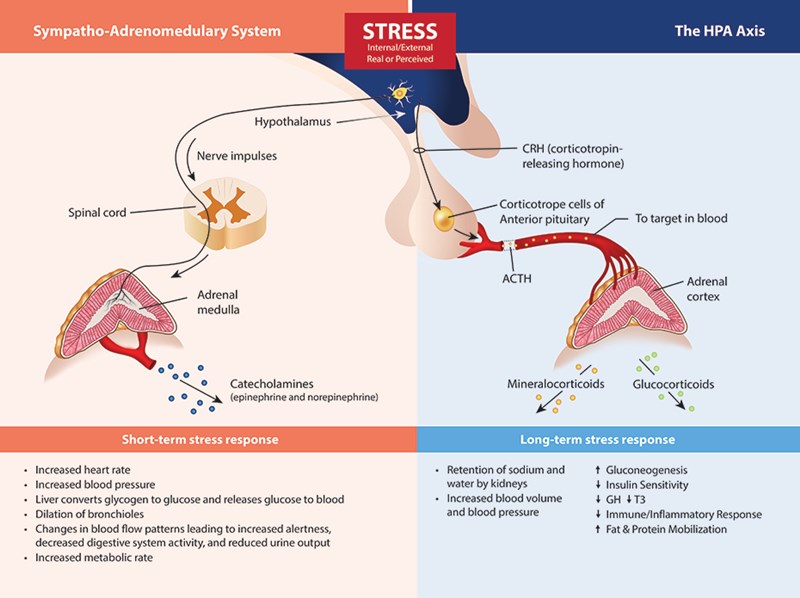Stress has a direct impact on our health and plays a significant role in chronic pain. Previous research has shown that ongoing exposure to stressors is more strongly associated with chronic pain than a singular traumatic event. A recent analysis by a team of British researchers found the strongest association between total abuse (a combined measure including physical abuse, sexual abuse, emotional abuse, medical trauma and other lifetime stressors) to the onset of fibromyalgia (FM) symptoms. When exposed to a stressor, our body releases cortisol via the hypothalamic pituitary adrenal axis (HPA). Normally after a stressful event cortisol level decreases and our body returns back to normal. This study supports the theory that ongoing exposure to stress may cause the stress response to become dysfunctional leading to long-term changes in HPA axis functioning. Thus, it is very important for FM patients to reduce the number of stressful events and improve their coping mechanisms to stress to improve their overall health. Restorative sleep and aerobic exercise have been found to be most effective.


